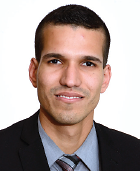The Forgotten Island
Abstract

As a child, I visited my family in Vieques, a municipality of Puerto Rico. My mother grew up on this small island, and somehow I knew it was a different place with different needs. Getting there from San Juan is a two-hour adventure. And while Vieques is a social microcosm of mainland Puerto Rico, it also mirrors the profile with a common denominator: geographic isolation. Intuitively, I realized that mental health and poor education were impacting the dynamic of entire families, but it was not until I was a medical student that I began to understand Vieques’s lack of accessibility to education and health care resources.
Vieques has no full-time psychiatrists on the island, leaving the quality and quantity of mental health care to be minimal at best. Island-based health professionals—who include approximately four primary care providers (PCPs), a neurologist, two dentists, and an emergency doctor—lack well-defined outreach programs to facilitate the delivery of mental health services. Despite these limitations, mental health treatment is accessed through PCPs and emergency services, with the exception of individuals who attempt suicide. They are transferred via helicopter to a hospital on the mainland.
I observed firsthand how Vieques’s isolation and lack of support from the main island impedes islanders from leading a dynamic and fulfilling life. With the support of APA, we visited Vieques as part of our second APA Mental Health Awareness Tour. We also coordinate an educational program called Salud a Flote. It provides an extra communication mechanism that promotes awareness of mental health and addiction issues in the community.
Over the last several years, we have learned that to make an impact, the following steps were necessary:
Include the community. Meeting with community leaders and learning about their needs in their own words were critical to exploring the principal necessities for the communities. We needed to be realistic, listen, and ask specific questions, as well as create an atmosphere that communicates “we are part of a team.”
Tailor educational activities that fit the residents’ needs. For an effective delivery and evaluation of the interventions, we needed to establish a community typology that provides a balanced and cost-effective approach. We needed to be careful not to promise what we could not deliver.
Use technology to help build educational activities. Technology is helping education expand beyond linear, text-based learning. We identified already established organizations and groups in the community with the capacity to expand educational projects. We wanted to be more accessible, more affordable, and more efficient at delivering basic education to more people.
We were fortunate to have the support of community leaders in Puerto Rico and APA. I have come to realize that an educational intervention is not enough if it is not integrated into a good public health system. Our results indicate that a greater understanding of communities may enhance our ability to increase prevention, awareness, and effective management of mental health and substance use conditions.
A promising change is coming with broader acceptance of the integrated care model and the increase in educational activities to decrease stigma in vulnerable communities such as Vieques. It is important for us to return often to Puerto Rico and continue adding resources with the goal of addressing mental health services inequities, which creates life-threatening outcomes and poor quality of life. In my experience, the use of media, technology, and the support of the community are required to develop future projects. We call for your support of the Puerto Rico APA Mental Health Awareness Tour as we continue to face the challenges of mental health care delivery and public policy development in Puerto Rico. ■



